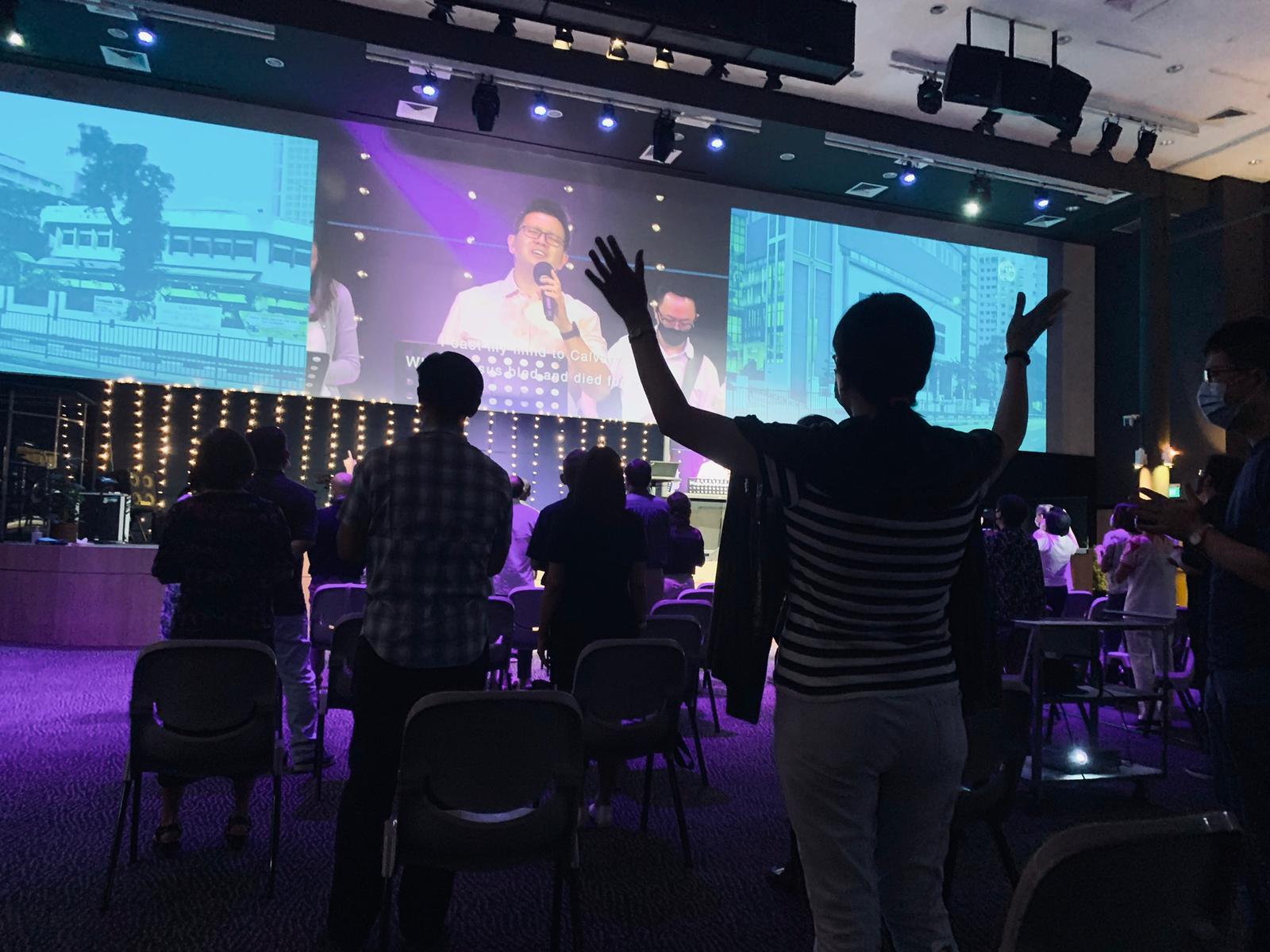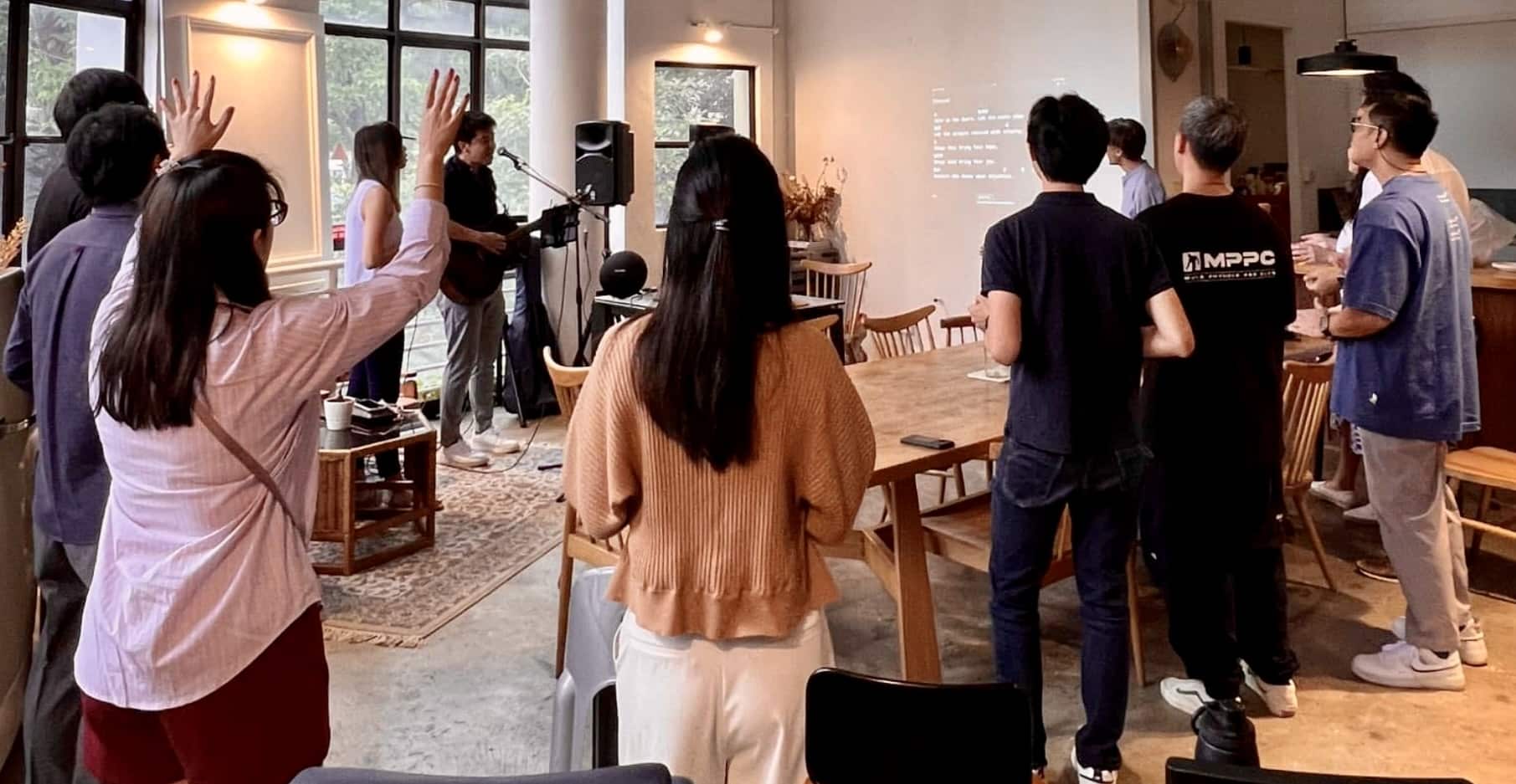New guidelines for church services from May 8 to 30: Full details
Salt&Light // May 5, 2021, 8:41 pm

From this weekend, church worship services will be capped at 100 (or 250 with pre-event testing) from May 8 to 30 under tightened guidelines announced by the Government in Singapore – but there will be no change to the current total premises capacity of 150 for religious classes.
And while the congregation cannot sing, worship leaders will continue to be able to sing live and unmasked at services held on church premises, according to details provided by the Ministry of Culture, Community and Youth on May 5 (Wednesday).
Churches must acknowledge the new conditions for religious activities before commencing the activities, by their Safe Management Plans at least 2 days before commencing with the revised activities, said the MCCY.
On the frontlines and far from home: Two foreign nurses draw comfort from giving comfort
GUIDELINES FOR CHURCHES FROM MAY 8 to 30
1. SERVICES CAPPED AT 100, OR 250 WITH PRE-EVENT TESTING
Without pre-event testing, churches and other religious organisations may conduct congregational and other worship services at places of worship, with up to 100 persons at a time – excluding religious and supporting workers, whose numbers should be kept to a minimum. If there is pre-event testing, services can go up to 250 attendees.
Worshippers must participate in worship services in groups of no more than 5 persons, down from the previous 8. There is no change to the existing rules of the need to wear masks at all times; no sharing of common items; the maximum of 50 per zone, with 3 metre separations between zones; and separate or staggered entrances and exits for zones.
2. NO CONGREGATIONAL SINGING, BUT WORSHIP LEADERS MAY CONTINUE
While congregational singing will not be allowed from May 8, there are no changes to the previous guidelines on worship, such as a maximum of 10 unmasked, of which 5 can be unmasked worship singers, who must be separated by a 3-metre setback from the rest of the congregation.
Services held at indoor third-party premises are limited to live instrumental music (non-wind). No live performance elements (including live instrumental music) will be allowed at outdoor third-party premises.
3. PRE-EVENT TESTING MUST TAKE PLACE LESS THAN 24 HOURS BEFORE
Should a church decide to undergo pre-event testing, they must ensure that all worshippers obtain a negative COVID-19 test result before they may be admitted into the service venue. However, worshippers who have been vaccinated, or who have a valid exemption notice, with relevant documentation, are exempted from this requirement.
Those being tested must undergo an MOH-approved COVID-19 test – either an Antigen Rapid Test (ART) or Polymerase Chain Reaction (PCR) test – administered by an approved test provider.
The test results are only valid for 24 hours from the time an individual registers at the testing premises. The church must ensure that the result of the test is valid until the end of the worshipper’s participation in the worship service.
4. NO CHANGE TO TOTAL CAP OF 150 AT RELIGIOUS CLASSES
Churches may continue to use places of worship to conduct religious rites and other religious activities – such as religious classes for adults and children – as long as they are conducted in gatherings of up to 50 persons, with a total premises cap of 150 persons.
This figure includes the religious worker, teacher, and supporting workers, and does not include the 100 at worship services taking place concurrently.
Each group can have no more than 5 persons, with MCCY suggesting a gap of 2 metres between groups of students as a best practice.
5. MANDATORY USE OF TRACETOGETHER-ONLY SAFEENTRY BY MAY 17
TraceTogether-only SafeEntry, using either the App or Token, will be required at all venues including churches from May 17. Churches conducting services for under 100 persons will also be required to deploy the SafeEntry Gateway at their main entrances by June 15.
6. CHURCH WEDDINGS LIMITED TO 50 WITHOUT PRE-EVENT TESTING
Churches may continue to use places of worship to conduct marriage solemnisations of up to 50 attendees without pre-event testing. However, for ceremonies involving 51 to 250 attendees, testing will be required for the wedding couple. (These numbers exclude the solemniser and religious and supporting workers, whose numbers should be kept to a minimum.)
If the total number of attendees is more than 50 including the wedding couple, they must be segregated into zones of up to 50 persons each. Attendees must maintain a 1-metre safe distance between groups except a core “wedding party”, which is allowed to comprise up to 20 persons, including the couple and their two witnesses.
There should be no intermingling or mixing between groups nor between the “wedding party” and these other groups. No food and drinks or non-essential religious rites will be allowed.
7. FUNERALS, WAKES LIMITED TO 30 ATTENDEES
Funerals, wakes, installation of niches and post-funeral rites can involve a maximum of 30 attendees at any time, in groups of no more than 5 persons. This number excludes religious and supporting workers, whose numbers should be kept to a minimum. No food and drinks are allowed.
Funerary-related activities at places of worship may continue to involve live instrumental music (non-wind). No other performances are allowed.
8. CHURCH STAFF: WORK FROM HOME ENCOURAGED
From May 8, only 50% of employees may return to their workplaces at a time. Churches are encouraged to allow as many employees as possible to work from home.
“Churches should primarily engage their religious workers and staff to support the permitted religious activities but can deploy volunteers to support if necessary. The number of personnel involved in conducting each permitted activity should be kept to a minimum,” added the MCCY.
We are an independent, non-profit organisation that relies on the generosity of our readers, such as yourself, to continue serving the kingdom. Every dollar donated goes directly back into our editorial coverage.
Would you consider partnering with us in our kingdom work by supporting us financially, either as a one-off donation, or a recurring pledge?
Support Salt&Light




